My Recollection
My ding-a-ling. Scot-ish deer hound. Stringent usury laws.
It was somewhere around the turn of the millennium and a friend of mine was labelling a 6-megabyte video file “emu takes a vicious shit”. That’s not what the video file was. The video file was some excerpt of some band’s music video, the kind of thing teens would download over dial-up connections, but now it was on Kazaa as “emu takes a vicious shit”. This was an experiment. People were downloading the file almost immediately.
The modern net is a place that is marked by organisation. If you want a thing, you have the knowledge that it can be looked for and even a few basic ideas of where to begin. Wikis, forums, and torrent sites catalogue thing in ways that a rapidly self-awaring overmind makes easily searchable. Downloading stuff today is, as a result, a fairly humdrum affair with even Boomer parents getting in on the torrenting action for things like Game of Thrones.
Prior to this were peer-to-peer file sharing programs. Programs like Kazaa, it’s predecessor Gnutella, and its successors like Limewire—themselves decentralised follow-ups to centralised earlier iterations like the famous Napster—were the primary way a turn-‘o-the-century folk downloaded media. It was because of Kazaa that I managed to finally see the last 3 episodes of Futurama, which the local broadcast network had just decided not to air which was a thing that would happen. But downloading episodes of familiar animated sitcoms on Kazaa was a bit different to the torrent sites of today.
Modern torrent sites are marvels of simplicity fuelled by a far larger seed base and pirate scene groups who enforce a level of basic honesty that borders on fantastic customer service. You’re only as good as your uploads, so names are made or broken on things like quality of content and accuracy of labelling. Kazaa… Kazaa was a different matter. One afternoon, I saw what I thought was an episode of Family Guy and decided to download it.
My friend’s video wasn’t an emu taking a vicious shit, and he received no negative feedback in spite of this. The thing about sharing programs like Kazaa, was that it was still wild west internet. There weren’t identities behind the links with a sense of self you could harm. You searched for a term, links containing some permutation of it would pop up, and you’d aim for the ones that fit some loosely defined criteria of legitimacy. So, I downloaded Family Guy. It wasn’t Family Guy.
There’s a point where you’re watching a woman get fucked by a horse when you truly doubt the evidence of your own eyes. This wasn’t some kind of Shetland thing, this was a horse you’d see lazily pulling a cart of hollering children like it didn’t notice the weight. A horse this big has a big horse dick and a big horse dick is not just big for a dick, it’s BIG big, like you’d be annoyed if you had to carry it big. Imagine an arm if someone held a grenade too long and blew off their hand, but it also mutated it somehow and now the arm could cum, that’s how big this thing was. Now think about how your arms reach your waist, and what that means for a similarly sized thing to be inserted in you. I didn’t know people could do that. How was she not vomiting a horse dick? How was she not dead? The horse was into it, too, so the lady was copping a solid meter of throbbing equine nut cannon with all the tenderness of Bill Cosby at a narcoleptic treatment centre.
The video itself was short, but it had been looped a bunch to give the impression of a 21-minute run time and the corresponding file size. This is how it got past my vaguely defined criteria. It’s not like I tried to run LinkinPark.exe. To this day, I thank whatever niche god is in charge of horse fucking or families-and-sometimes-horse-fucking for my family just happening to not be home because the audio of that file is almost impossible to mistake for anything else. If you’re thinking, “Gabriel, there’s no way you can tell something is a woman getting hammered by a horse just on audio alone” you’re goddamn wrong. There’re a few audible clops of the stallion positioning itself and then a diaphragmatic “Huuuurrrrgggghhhh” that combined the sense of exertion of a fat guy moving a couch with the unmistakably sexual lilt of a fat guy turned on by moving couches. This happens in the first 5 seconds. I’m still figuring out why Family Guy is doing some weird, low res cold opening and I’m already hearing what sounds like Ned Beatty getting raped in Deliverance but if he were actually really into it and only just discovering this fact.
It’s looping, but in that way that’s sort of hard to tell that it is so I’m hearing the “Huuuurrrrgggghhhh” for a second time before I even realise this isn’t what I’d ordered. I’d just had two bucket bongs and was expecting the opening trumpet flare of the Family Guy theme, not the flare of a horse dick I later learned was for locking the most cum I’d ever seen into the chasmic orifice of a woman with her cervix in her throat. Fourth time: fuck me mute, mute, MUTE. Fifth time: there’s 20 minutes of video left, maybe the episode is after the horse fucking. 30th time: Christ, I just spent over an hour downloading a woman getting nailed by horse.
The Episode
The Simpson family exist within a universe that’s a flanderised version of our own. Homer is a collage of lower middle-class white guy stereotypes in a cartoon buffoon shell. Marge is his straight man, making her every domestic doormat. Bart is America’s Bad Boy. And Maggie is the baby with the occasional dips into the Shakespearean blessed fool territory. Then there is Lisa, the neglected middle child.
This can be a dangerous position for a character to be in, particularly in a comedy, as the broad strokes and absurdities that a sitcom lives on don’t find comfortable purchase in the genuine. This can lead to becoming almost a background character, simple foil for the others, or the psychic toilet for others to shit in. Meg Griffin, for instance.
The Simpsons’ great accomplishment was in caring about the depth their characters had behind the commedia dell’arte masks of family sitcom archetypes, and this turns Lisa’s precarious position into an advantage. Bart and Homer are mostly comic archetypes with some character moments. Marge is only funny when existing as the inverse of her normal state which keeps her a function and not a character. Like her husband and son, she gets moments but that’s it. With every other job taken, then, Lisa exists as a character first and a series of narrative devices or comic archetypes second and this is something Lisa’s Pony uses to great effect.
War of the Simpsons fucked up the resolution by making the problem too heavy for the quickie solution to effectively counterbalance. Familial love naturally overcoming familial strife is neither unusual in reality nor unfair a plot device, but the causal problem and marriage counselling were so severe they warranted narrative work to overcome. The focus on Lisa as the agent of the narrative release sees her expand her field of genuine, to stabilise a rough start and execute the kind of ending War tried and failed.
The severity of Homer’s transgression in War is matched here only in extremity, but whereas the former was uncomfortably real, this is uncomfortably fucking stupid. A side-effect of him as a function, his faults can’t be sane as then the resolutions would demand impossible growth, but even then, this was sloppy execution. Homer going to the bar because he had an hour to spare, then getting drunk and forgetting, accomplishes the same narrative goal. It’s still irresponsible, inconsiderate, and an indicator he drinks too much, but it has an exhaust valve of “I’ll just remember next time” that can believably keep him from changing. Five minutes to spare with the store literally next door to Moe’s is dumb even for Homer, and that’s a universe-quaking level of dumb.
It’s ugly, but the episode survives, even thrives, because it quickly moves on from that and makes the subsequent conflict with his daughter the focus. This kind of shift is like sweeping something under a rug: it works only for very small things and only ever rarely. So, a bad thing accomplished a good goal, but the lesson is to not do the bad thing in the first place.
It’s Lisa’s depth that helps distract from this point. Her reaction is one familiar to one of the underclasses: brief sadness followed by cultivated anger. There are a million forms of rage, most are highly toxic to the bearer as they’ve nowhere to go but inside. Lisa has a target, so hers is a righteous fury that punishes someone entirely deserving of it. Audiences will always be drawn to just punishment, almost every narrative form involves it somewhere, and it’s not something other characters could manage as believably because the reset means they grow alienatingly stupid as they return for seconds.
Character depth is an analogue space where movement isn’t jarring because it is shifting through visible intervening points. Bart and Homer’s character episodes and archetype episodes don’t blur into an analogue space because a comedy show forces the domination comic archetypes. These unchanging things can’t be disrupted by growth, so Bart and Homer as character or archetype exist as digital points that the narrative needs, sharing a space but never mixing. Jumps between these points, then, become expected enough to prevent whiplash, but this opens the door to lazy plotting. The analogue Lisa must change in noticeable, gradual ways and this tends to force better narrative structure.
War of the Simpsons dedicates a whole second act to the excruciating reality of a shitty marriage between an oaf and a doormat. These are people who are only together because of children and mutual desperate stupidity. The presto-change-o fix is a cartoon solution to a real problem, so it stands out like an insult. The second act of Lisa’s Pony is the work War failed to do. Homer hurt his daughter through an act of mindboggling stupidity, but we don’t hang on that, we focus on the amount of work he does to atone. His suffering, though frequently funny, is as real as Lisa’s hurt and subsequent anger, so the pair balance themselves. Lisa’s a genuine character, so his efforts must be similarly so.
This is manifest in lines like Lisa’s, “All the years I’ve lobbied to be treated like an adult have blown up in my face”. She prides herself on her mind and moral fibre, so when she sees her father, broken at the Kwik-E-Mart, her decision is the logical result of narrative and character, not a trope moment trying to lift more than it’s specced for. The story isn’t about how getting her heart’s desire makes her love her dad again, it’s about her growing to understand her father’s faults relate to impulsiveness, and not any form of uncaring.
The fundamental conflict point between Lisa and Homer is one of difference. The chasm between the two makes even basic communication a lot of work, and subsequent misunderstandings are naturally developing rifts. But with Lisa existing outside the narrowing factors that bind her family, these rifts become depths with many explorable nooks. Other episodes are about this chasm, but the analogue Lisa affords a sense of nuance and growth instead of dull repetition.
Lisa’s Pony is a lot of familiar things and not all of them good. The source of the conflict is a frustrating piece of writing and the show deals in the father/daughter conflict enough to wear, but the neglected middle child winds up with advantages that add the necessary depth to counter these problems. Homer, Bart, and Marge will have episodes that delve into character, but these frequently end in resets, things only ever mentioned again in passing if they’re not wholly ignored. Aside from maybe Apu, Lisa has the most actual canonical growth in the series, and most of it is character development and not the life milestones that typify the other examples. She may have to play straight like her mother, but because she can grow, this turns her from comic foil into genuine person.
Yours in throwing pronunciation in at no extra charge, Gabriel.
Jokes, lines, and stray thoughts.
Ah, 2001 references, classy. The director’s commentary mentions that this was supposed to indicate the Homermonkey “inventing” slacking off as his revolutionary innovation, but it always read to me as evidence of Homer’s genetically determined uselessness. More him ignoring the Monolith than being inspired by it.
Taking a note on a shoe sole seems weirdly specific to have come out of nowhere for Homer but I’ve never seen it anywhere else. The joke about the hole is fun, particularly because its presence should be reminder enough.
My schools never had any talent shows like this. There were performances of plays in senior, but that’s about it.
Character stupidity is a really tricky point. It jars the viewer to the point of frequently being seen as a plot hole, and, in their defence, it almost can be. When Kane was brought back on board the Nostromo in Alien with a thing on his face, Ripley rightly cited quarantine to keep him separate. This sort of sensible behaviour doesn’t make for a fun film, though, and so Ash overrules her. This would be dumb as shit, had it not turned out that Ash did it for his own nefarious motivations. Compare this to the atrocious Prometheus, where people who should know better breathe unknown air, get lost in single corridors, and fondle alien life forms with no regard. But the reality is: there are stupid people, so it is fair to have them pop up in stories, just balance them to fit the environment.
Homer’s stupidity is comic necessity, so it can’t be held to the standards of functional sci-fi, but there are still limits. The later series dispense with any care at all, but a sinking ship drowns all occupants so I that’s more a problem for the series than the character. Five minutes is insulting and not worth it as an attempted joke or the subsequent one of Homer telling Moe how to do his job. Give him an hour and the wait becomes acceptable while retaining a fault through his forgetting about his daughter.
The episode seeds this through Lisa’s list of previously called help, but it’s irrelevant to the problem.
I always wonder what wet the first five rows.
If you came into my store with 15 seconds to spare, you could go fuck yourself.
Not being impressed by an impressive act is the kind of joke that needs to go somewhere. The bored judges don’t do much, save Bleeding Gums really enjoying Bart’s act.
King Toots is one of the more reliable sights in Springfield and the director’s commentary mentions it being a pain as it’s a detailed thing to have to draw.
If you called me a moron for closing 15 seconds early, I’d laugh at you and call you a bad father.
Trenchant: vigorous or incisive in expression or style. It’s a really odd word choice and I have no idea why it’s here. It is way outside of Homer’s vocabulary and fits the definition only by the slimmest of margins. It feels like a Word a Day calendar joke got lost somewhere.
Skinner ragging on the kids is funny. Teachers do that, they’ll hang out and make fun of your formal outfits. I’ve done it with them. It is very funny.
Homer forgetting the instrument is alright, not knowing what type of sax is fair.
Marge’s dream of Homer delays involves some amusingly not Kang or Kodos aliens.
My Dingaling is an actual song by Chuck Berry that he’d get people to sing along with him. Normally, I’d consider that mostly harmless, but this was a guy who opened a restaurant so he could put cameras in the bathroom and film women peeing so I’m guessing he was jacking off about the dingaling chants after the show.
I always got the dingaling kid mixed up with Milhouse but it’s actually the kid who turned his eyelids inside out for Mr Bergstrom but with blue hair. His name is Chuck Berger. He wants you to play with his dingaling.
“It’s the reed” is a good quote line, though Skinner acting like he doesn’t know Lisa can play the sax is a bit off.
Lisa is at her passive aggressive best at the ice cream store.
The Simpsons own a Betamax, nice detail.
“No, my freakish little friend” in the Fantasy Island episode in the background is funny.
The gap between father and daughter is really well illustrated here. Homer watches videos of Lisa as a baby and is moved. It’s a very genuine moment as it is completely self-motivated. Nobody has to browbeat him into realisation, and this adds depth to it. But he still hates the idea of spending time with her. To be fair, Lisa is much smarter than he is, and for someone like Homer, being around the smart just rubs the fact that he isn’t into his face. It’s the unspoken pain of the dumb-dumbs that explains a lot of bullying.
Homer blow drying Lisa’s face is a goodun, as is shoving her off the swing.
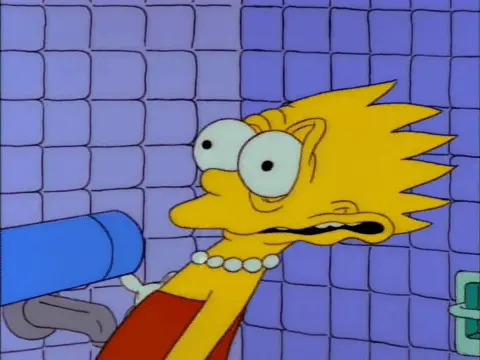
One of my favourite dumbass things from dullards like Homer is worrying about doing something is gonna make you gay. Like that’s how that happens, 3 tea parties and bang! An unholy lust for hairy bear cock. What this says about the stability of their own sexuality is something they don’t like hearing.
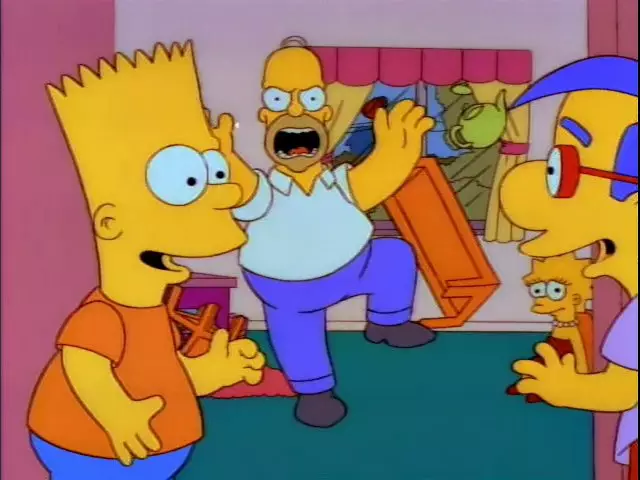
“…can’t afford NOT to buy a pony” is a solid line.
“THOSE AREN’T EVEN WORDS” and Homer’s “Buh” and “Snuh” are great, as is the grin in the dark.
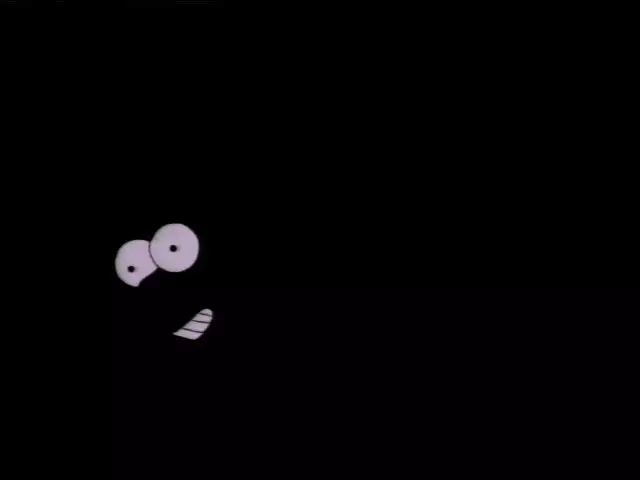
Homer at the pet store is a solid series of jokes at Homer’s expense and Sarcastic Guy is a great delivery vector.
A pound for ponies.
Millicent the horse lady is a fun archetype and her line of “I sincerely hope not” is brutal but not without reason.
Great Burns moment, does what it needs to do and doesn’t clog the narrative at all.
“Must have just made up a word that doesn’t exist” blurred through is great, as is the question of whether Homer is going to eat it. Smithers and the “I didn’t do anything funny” is another great one. This is a dense scene that throws a lot at you, by keeping it fast and alternating between focal jokes and missable lines, you wind up with one of those great, rapidfire scenes the show was known for.
Usury refers to lending money at unreasonably high interest rates.
Godfather reference cancelling out questions of how Homer got the horse into her bed without Lisa noticing.
Fucking horse girls, man. Weird little things.
Homer’s face when he’s telling Bart he doesn’t get squat is good.
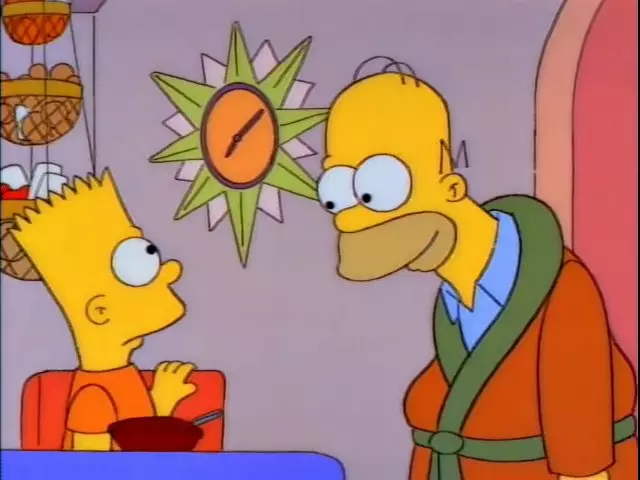
You could probably have built half a shed in the backyard for the horse. In Australia, you can have any animal like this in a suburban yard if it’s under a certain number. Like, you can have one cow. It’s also dangerously easy to have this happen. My housemate and I almost got a goat delivered for 80 dollars.
Lisa’s pro-NUNC-iation scene always stuck in my head.
Teaching old people videogames is weird. I wonder what will be going on in 40 years that I can’t get my head around, or if a life lived among wild technological change will mean I can still keep up. Either way, robot sex nurses!
“I got down on the floor for this” I feel that line, Grampa.
Buying vaccinations, haha, America.
There’s a kind of Homer scene where he’s not being stupid so much as using his stupidity to get out of a conversation he doesn’t want to be in. These are usually really funny and give a little back to Homer the character. His “make up your mind” speech is a good one of these.
“A cherry” and the scene around it is good. Apu has a few solid lines in this episode including “Always I dreamed the day would come when one of you would be working for me”
Ralph with what sounds like Nelson’s voice.
One time I worked a 40-hour weekend. By the end of it, I’d had maybe 9 hours of sleep over 3 days and I ended the Sunday night crying while polishing glassware. I didn’t even know I was doing it.
Apu laid pipe back in the day. Princess Cashmere is a solid score.
Homer’s first job that wasn’t at the power plant, back when such things took more narrative work.
The dream sequence is great, based on some old comic called Little Nemo in Slumberland.
Recycled footage from Bart’s Dog gets an F
Bart has a few moments where he shifts from genuine concern for his father to laughing about it because of some detail, it’s very in character, he does care but he is a jerk.
This episode is another good example of how a core emotional conflict can be the scaffolding for looser narrative conflicts.
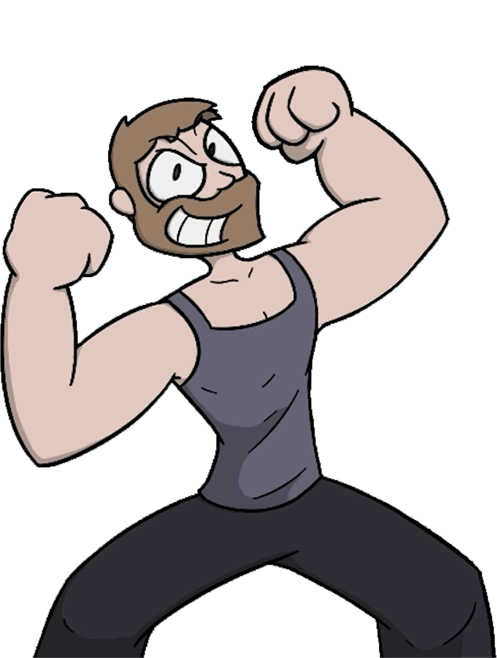

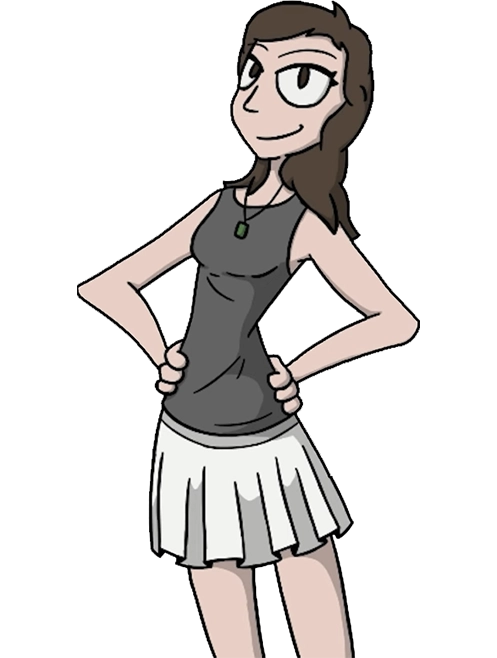
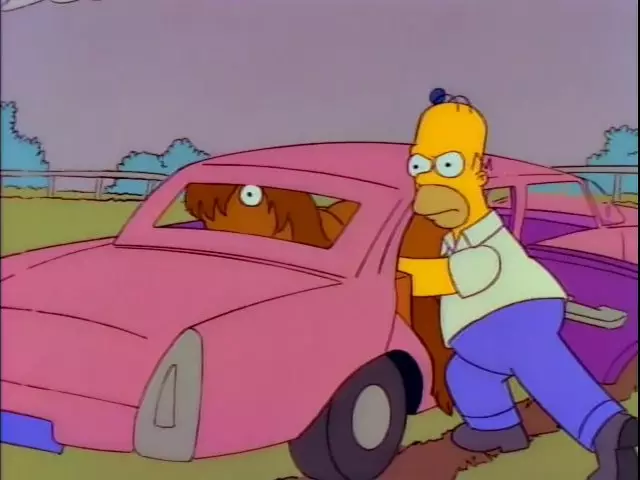

3 replies to Lisa’s Pony
Magnumweight on 7th December 201907 Dec 19 said:
I really just think of the "My Ding-a-ling" joke when I think of this episode, from the enthusiasm of the kid singing to how mad Skinner gets the joke is just perfect.
I enjoy this episode well enough, but I just don't seem to remember much of it. I'm always surprised by the loan office scene, I guess I remember it or something like it being in a different episode.
Also it feels like the gap between episodes has gotten shorter, so kudos to that, keep up the good work!
Gabriel on 8th December 201908 Dec 19 said:
Yeah, getting better at the routine. This period has a few of those really forgettable episodes, not because they're bad or anything, really, just that they're sandwiched between two rather distinct periods.
Magnumweight on 9th December 201909 Dec 19 said:
Honestly most of season 3 is a blur to me, I even forgot the next episode in the order existed for several years. It really doesn't help that it's pretty much the same as this one but with different children
Comment on Lisa’s Pony
To reply, please Log in